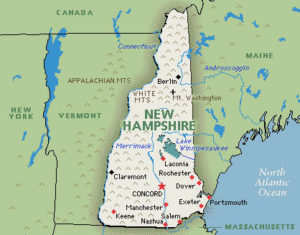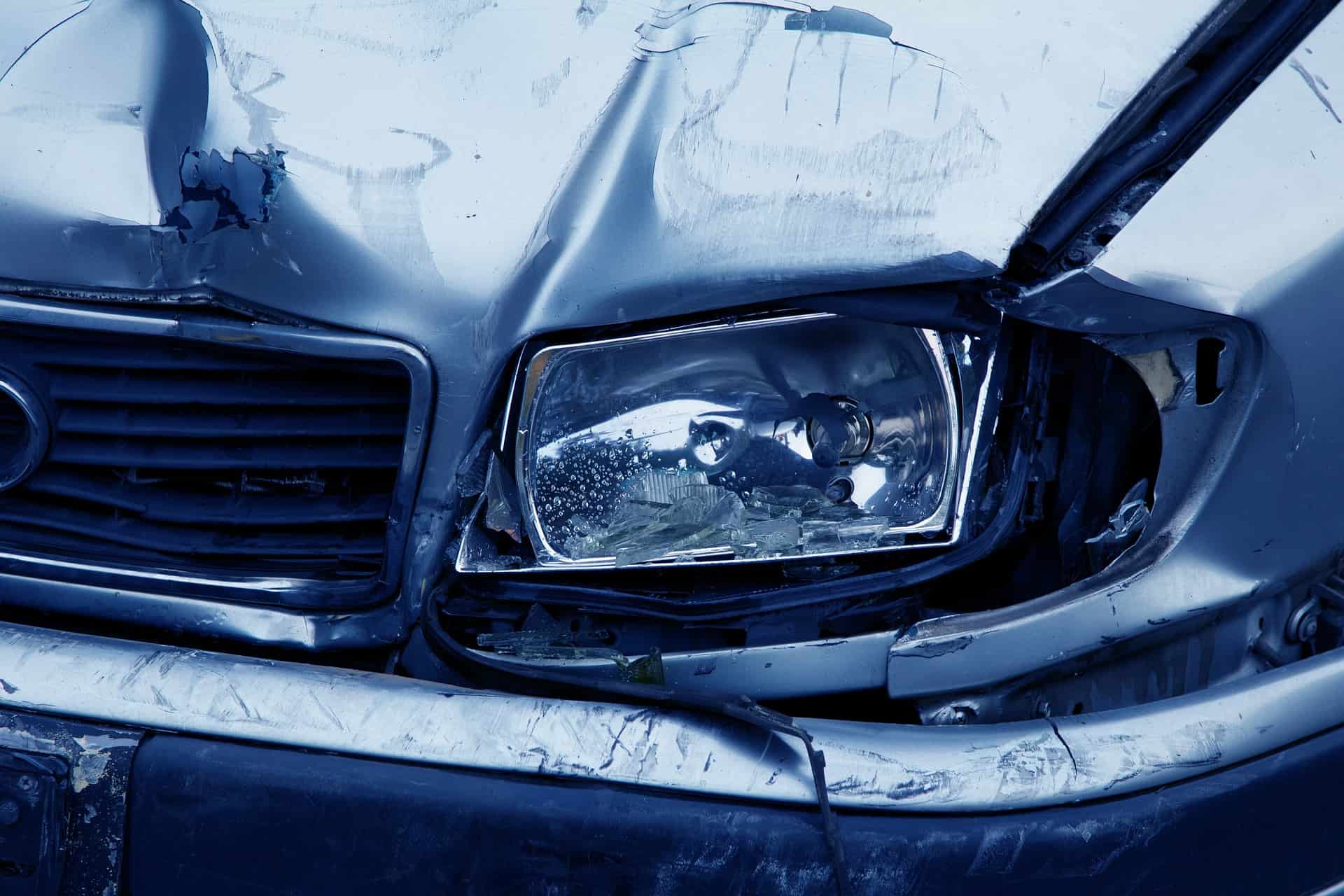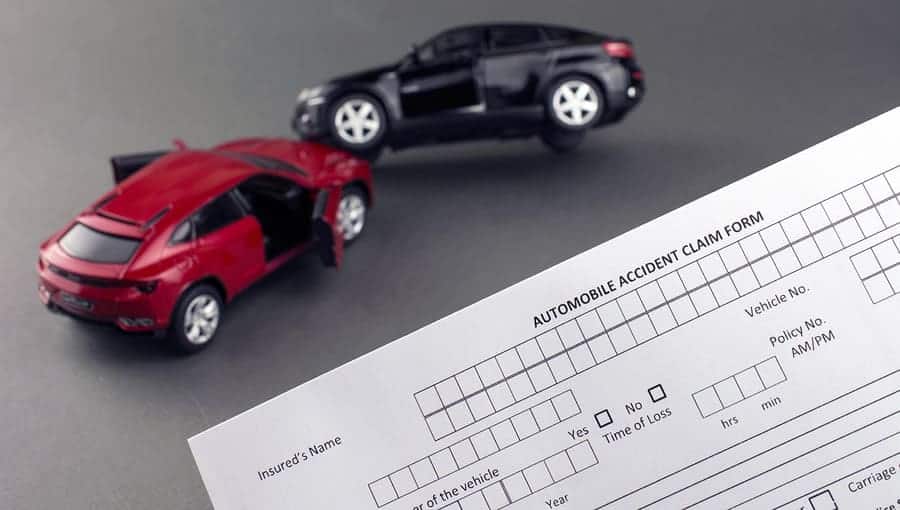New Hampshire Car Accident Settlement Guide

New Hampshire Auto Accident Settlements

When you’ve been in a car accident, the last thing you want to worry about is how to get a settlement. But unfortunately, that’s often what needs to be done if you are injured and need financial compensation for your losses.
From Manchester to Plymouth to Keene, you have plenty of scenic roads to explore in New Hampshire. As you drive across this scenic, small state, you can see Weirs Beach, the White Mountains, the Lakes Region and Merrimack Valley. There are 1 million licensed drivers in New Hampshire, and they are involved in many minor and serious car accidents every year. Wherever you are living or visiting in the Granite State, it is important to have enough auto insurance as there are legal requirements regarding its use. It also is important to know the laws and regulations of the state when you drive. That way, you know what to do if you are in a car accident.

- How Much Is Your Car Accident Settlement Worth?
Find out the maximum compensation you could receive.
- How Much Is My Car Accident Settlement Worth?
In New Hampshire, settlements are possible when the person responsible for the accident is found liable. Car accident victims may seek compensation for their injuries from the insurance company of the at-fault driver.
This article will discuss the car accident settlement process in New Hampshire, and any other legal information required to obtain maximum compensation.
How do I file a claim for a car accident in New Hampshire?
If you’ve been involved in a car accident in New Hampshire, filing a car accident claim can be a complicated process. To ensure the best possible outcome for your case, it is important to understand the process and take the necessary steps to provide evidence of your damages.
The first step to filing an insurance claim is to gather necessary documents including medical records and proof of damages. This is a crucial step- document all the details of the accident. This includes gathering information about the other driver, including their name, contact information, vehicle identification number (VIN), license plate number and insurance policy details. You should also take pictures of any damage at the scene of the accident, if possible.
Once you have gathered the necessary documents, you must provide them to insurance company along with a completed claim form. The driver’s insurer may then assign an adjuster who will review your documents and determine the compensation you are entitled to receive. It is important to remember that the insurance company’s decision on how much money they are willing to pay out is not necessarily final. If you disagree with their ruling, you may be able to appeal it or negotiate a better settlement.
Finally, if necessary, you may need to enlist the help of an experienced personal injury lawyer. An attorney can help you build a strong case and take legal action against the other driver’s insurance company. They will also be able to provide advice on how best to proceed with your claim and represent you in court, if necessary.
What is the Average Settlement for a New Hampshire Car Accident Claim?
The amount of money a person can receive as a settlement for a car accident in New Hampshire depends on the severity of the accident, who was at fault, and any property damage. In some cases, even if you are partly at fault, you may still be able to make a claim. The Modified Comparative Negligence law in New Hampshire affects the amount you can receive from an accident settlement. This law states that if you are partially at fault in an accident, your settlement will be decreased by the percentage of fault you have.
The average settlement value for a New Hampshire car accident without any major injuries is usually much lower than when there is personal injury or property damage involved. Settlements often cover medical expenses incurred as a result of the accident along with legal fees and in some cases even include compensation for pain and suffering. Of course, the amount of money you receive for a settlement varies depending on the individual incident and any property damage or medical bills incurred.
It’s important to remember that if you have been involved in an accident in New Hampshire, it is always best to seek advice from a qualified personal injury lawyer who will be able to advise you on your rights and help protect your interests during the claims process. They can also give you an estimate of what kind of compensation you could expect to receive based on your particular circumstances.
New Hampshire Car Accident Settlement Taxes
If you’ve received a car settlement in New Hampshire, a logical question is whether you will need to pay state and federal taxes on the money. Generally, you do not need to pay taxes on the money, but there are several exceptions to be aware of so you do not get in hot water with the state or IRS.
The IRS will always exclude income that you receive because of physical injuries. But there are some cases where you need to pay the tax man:
-
Emotional distress: If you are compensated for any emotional distress NOT related to a physical injury, this money is taxable as income. But your actual medical costs are not taxable as income.
-
Punitive damages: If you receive damages that go beyond pain and suffering and are received by you to punish the defendant, these are punitive damages and will always be taxable as income.
-
Interest: If you receive any interest on your personal injury settlement, this is taxable as income by New Hampshire and by the federal government.
This is a general summary of tax laws as they apply to New Hampshire car accident settlements, but it is important to run your case across the desk of an experienced tax advisor to ensure that you are operating within the law tax wise.
New Hampshire Auto Insurance Requirements
New Hampshire does not have a mandatory auto insurance law. This means you are not required to have auto insurance to drive in New Hampshire. However, if you do not have auto insurance, you may be held personally liable for any damages you cause in an accident, even if you are not at fault.
If you decide to get auto insurance in New Hampshire, you will need to purchase a policy that meets the minimum liability requirements set by the state. The minimum liability requirements are:
- $25,000 per person for bodily injury
- $50,000 per accident for bodily injury
- $25,000 per accident for property damage
You may also want to consider purchasing additional coverage, such as collision coverage and comprehensive coverage. Collision coverage will pay for repairs to your vehicle if you are in an accident, regardless of who is at fault. Comprehensive coverage will pay for repairs to your vehicle if it is damaged by something other than an accident, such as theft or vandalism.
If you are in an accident in New Hampshire, you will need to file a claim with the insurance company of the driver who caused the accident. If the other driver does not have insurance, you may be able to file a claim with your own insurance company, depending on your policy.
It is important to note that the minimum liability requirements in New Hampshire are relatively low. If you are involved in an accident that results in serious injuries or property damage, the minimum liability limits may not be enough to cover all of the damages. If you are concerned about the financial risks of driving without insurance, you may want to consider purchasing additional coverage.
What Damages Can I Claim in a New Hampshire Car Accident Claim?
Here are some of the damages you may be able to claim in a car accident claim in New Hampshire:
- Medical expenses: You can recover the cost of all medical expenses you incur as a result of your injuries, including hospital bills, doctor’s fees, and prescription drugs.
- Lost wages: You can recover the wages you lose if you are unable to work due to your injuries.
- Pain and suffering: You can recover damages for the pain and suffering you experience as a result of your injuries.
- Property damage: You can recover damages for the damage to your property, such as your car.
- Emotional distress: You can recover damages for the emotional distress you experience as a result of your injuries.
- Loss of consortium: You can recover damages for the loss of companionship and support you experience as a result of your injuries.
How Much Can You Receive for Pain and Suffering in a New Hampshire Car Accident?
Pain and suffering is a type of non-economic damages that can be awarded to compensate you for the physical and emotional harm you have experienced due to the accident.
The amount of compensation you can receive for pain and suffering will depend on several factors, including the severity of your injuries, the extent of your medical expenses, the length of your recovery, and the impact of your injuries on your quality of life.
In general, the more severe your injuries are, the more compensation you can expect to receive.
The extent of your medical expenses is also a factor that will be considered when determining the amount of compensation that you can receive for pain and suffering. If you have incurred significant medical expenses, such as hospital bills, doctor’s bills, and physical therapy bills, you can expect to receive more compensation for your car accident related pain and suffering.
The length of your recovery is another factor that will be considered when determining the amount of compensation that you can receive for pain and suffering. If you have a short recovery, you can expect to receive less compensation for your pain and suffering than if you have a long recovery.
The impact of your injuries on your quality of life is also a factor that will be considered when determining the amount of compensation that you can receive for pain and suffering. If your injuries have had a significant impact on your quality of life, such as preventing you from working or enjoying your hobbies, you can expect to receive more compensation for your pain and suffering.

New Hampshire Driving and Car Accident Laws
Negligence Laws in New Hampshire
In some car accident cases in New Hampshire, the jury will determine fault is shared between the two drivers. This is known as a modified comparative fault rule. This simply means the rule reduces the amount of damages you can collect depending upon your degree of fault. For example, if you are in an accident with another driver where he rear ends you and you suffer $10,000 in damages, you would be entitled to that full amount if he was 100% at fault. But what if your brake lights were not working when you were stopped? The jury could determine you were partially at fault because of nonfunctioning brake lights. If they decide you are 20% at fault, you could have your award reduced to $8000.
Also, in this state, you can collect damages if you share fault for the accident, but only if your fault is less than 50%. If it is 50% or more, you cannot collect damages. This includes both property damage and personal injury.
To prove that another driver is at fault for a car accident, you will need to show that the other driver’s negligence caused the accident. Negligence can be shown by proving that the other driver failed to use reasonable care, such as failing to obey the traffic laws or driving too fast.
New Hampshire also has a modified comparative fault rule which reduces a person’s compensation amount based on how much they are found to be at fault in an accident. For example, if you were 50% responsible for a car accident, any compensation amount you receive would be reduced by half.
New Hampshire also has a law against driving while under the influence of alcohol or drugs. This law states that it is illegal to drive with a blood alcohol concentration (BAC) of 0.08% or higher. Drivers who are caught driving under the influence can face serious penalties, including jail time and the loss of their driver’s license. Additionally, car accident settlements where the at fault driver is drunk often result in higher payouts, largely because of the potential for punitive damages if the case goes to court.
New Hampshire also has a law against texting while driving. This law states that it is illegal to use a handheld cell phone while driving. Drivers who are caught texting while driving can face a fine of up to $250.
Car Accident Statute of Limitations in New Hampshire
This state has a deadline or statute of limitations to file a personal injury lawsuit. Per Section 508.4 of the New Hampshire Revised Statute, there is a three-year statute of limitations that applies to most personal actions in the state. This covers lawsuits that arise from a car accident. Typically, the clock starts on the date of the accident, but it also could start on the date that you were made aware of an injury resulting from the accident.
If a person died due to the car accident, a wrongful death car accident settlement or lawsuit must be filed within three years of the death of the person. In either case, it is important to file the case well before the three-year deadline approaches so you have more leverage during settlement negotiations.
Other New Hampshire Driving and Accident Laws
There are several pertinent laws to know if you are in an accident in New Hampshire. First, there is a ban on texting for every driver in New Hampshire. The penalty for texting and driving is severe: You can have your driver’s license suspended and be fined $1000 if you cause an accident that causes property damage or hurts someone. Otherwise, the fine for texting and driving is $100. Second, all children must be in a safety seat until they are seven, or have reached a height of 57 inches, whichever is first. Third, as of 2014, the speed limit on the major north/south highway has been increased to 70 MPH from mile marker 45 to the border of Vermont.
There is no cap on damages in New Hampshire for car accident settlements.
Here are some other driving laws in New Hampshire:
- You must be at least 16 years old to drive a car in New Hampshire.
- You must have a valid driver’s license to drive in New Hampshire.
- You must wear a seat belt while driving in New Hampshire.
- You must not drive while drowsy.
- You must not drive while distracted.
- You must not drive with a suspended or revoked driver’s license.
New Hampshire driving laws are important to follow to keep yourself and others safe on the roads. If you are caught violating a driving law, you could face serious penalties. It is important to be aware of the driving laws in New Hampshire and to obey them.
Statistics and Notable Car Accident Lawsuits
The state DMV reported in 2016 that more people died in car crashes that year than in 2015. At the time of the report, there had been 57% more fatal accidents. Public safety officials stated that distracted driving and opioid abuse could have been major factors. But they also said that the lack of snow that year may have caused more fatal crashes. Why is this?
When there is a lot of snow, there are a higher number of large snowbanks on the roads. These are called by some in law enforcement and public safety ‘parachutes,’ which can cushion the blow in car accident. That year, there was less snow and fewer ‘parachutes’ to provide a cushion in an accident. There also were more people driving that year because of the better weather.
DMV stated that 58 people were killed in 55 motor crashes from Jan. 1 to June 26 in 2016. That was compared to 38 deaths in 35 crashes over the same period in 2015. Of the 55 fatal accidents that year, 12 of them occurred in Rockingham County. Nine were reported in Hillsborough and Grafton counties. Six occurred in Stafford County and five each in Merrimack and Cheshire counties.
The DMV noted that part of the reason for the higher number of deaths was the growing opioid epidemic. State police think up to 35% of the deaths involved operators under the influence of drugs. That number has been up to 60% of crash deaths in other years. DMV data also showed fatal accidents involving pedestrians had increased in the first six months of 2016. There were eight fatalities with pedestrians from Jan. 1 to June 26, 2016 – an increase from only two in the same time in 2015.
A major car accident settlement that was widely reported this year was a $9 million award given to a Hampton, New Hampshire couple who sued after the wife was struck by a car as she was walking along Ocean Blvd. in Brentwood. The state of New Hampshire will be required to pay part of the settlement.
Karen Weinhold won $8.5 million for her accident pain and suffering, and her husband will get $500,000. Weinhold and a friend were hit and severely injured as they were walking along the road in June 2014. The man who hit them was Remi Gross-Santos. It was decided by the jury that he should pay $2.7 million.
Pedestrian traffic had been moved from one side of the street to the other that year. The jury determined the company Audley Construction that was doing work on the seawall that caused the traffic change, should also need to pay $2.7 million. The 40% left had to be paid by the state.
The attorney for the Weinholds stated the decision by Audley Construction to move pedestrians from a protected spot around the construction zone to an unprotected one, was a contributing factor to the accident. Also, a major factor was that the driver fell asleep behind the wheel.
Weinhold stated in the trial she had spinal injuries and a complex leg fracture from the accident. She stated her neck is so damaged that a fall could be deadly for her. She said her current medical bills are nearly $900,000.
New Hampshire Car Accident Settlement Calculator:
Have you been involved in a motor vehicle accident or otherwise injured in New Hampshire? Find out how much financial compensation you may be legally entitled to in just minutes with our free online Car Accident Settlement Calculator.
New Hampshire Car Accident Resources
If you have been in a car accident in New Hampshire, we recommend that you consider the resources and information listed below.
- Per state law, any car accident that causes death, personal injury or damages more than $1000 must be reported in writing to the DMV within 15 calendar days. If the police did NOT investigate the crash, it is your responsibility to file an Operator’s Report.
- If the police respond to a crash and you cannot provide your insurance information, he may issue you this insurance verification form DSMV 385, also called a Blue Card. This form must be sent to the NH DMV.
- As the accident is being investigated and you consider filing a claim or lawsuit, you may need a copy of the crash report. You can do so with this form, DSMV 505.
Conclusion
To maximize your chances of receiving fair compensation for your losses, you may want to seek legal advice from an experienced car accident attorney who can help guide you through the process.
While we understand that money might turn your situation around completely,we believe that claiming what’s yours in the settlement process may help speed up your recovery because yu do not have to worry about medical bills, lost wages, or property damage.

- What’s my car accident settlement worth?
- Find out in less than 60 Seconds!
Related Articles
Whiplash Payout Scale for Grades 0-4
Whiplash is common in car accidents, especially rear-end collisions. Your head and neck are forcefully jerked back and forward by the rapid acceleration-deceleration combination, causing injury to the head, neck, and shoulders. Each auto accident is...
How Long Does a Car Accident Settlement Take?
Involvement in a traffic collision creates a difficult situation, which can be made worse by injuries and property damage. You may be legally entitled to monetary compensation. How long does a car accident settlement take? The answer is different for everyone, but...
How To Adjust to the Traffic and Transportation Culture of a New Area
Even within the same country, transportation cultures can be drastically different. For instance, in New York, the public transportation system is a lifeline for many residents, with the subway being the primary mode of transportation. The city's layout encourages...
The Safety, Pros, and Cons of Different Methods of Transit
There are pros and cons for the different forms of transportation people use every day. The choice of how to get to work or school, run errands, or take longer trips often depends on what modes are available. In densely populated cities, bikes, walking, and public...
How Smart Infrastructure Will Improve and Complicate Public Safety
The American Society of Civil Engineers explains that smart infrastructure uses sensors, cameras, and other connected devices to collect information that helps provide better public services. It works in security, traffic, public transportation, utilities, air...
How To Rethink Your Approach to Hobbies in Light of an Injury
Hobbies are incredibly important for your health and your quality of life. They reduce your stress levels and fight off anxiety and depression by allowing your brain to focus on something you enjoy. You can use hobbies to connect with others, get outside, and get...
Can Exercising Negatively Affect a Car Accident Settlement?
Exercise is a daily part of life for many people. Some individuals work out to stay fit and improve their mobility while others enjoy the mental health benefits of running, swimming, and participating in other forms of exercise. However, after a car accident, it can...
How To Identify Dangerous Driver Behavior in a Taxi or Rideshare
You’ve most likely taken a taxi or rideshare from or to the airport, an event, or just to a friend's house. As integral tools in modern life, they offer convenience, efficiency, and, in many cases, a cost-effective alternative to owning a car. However, like any other...
How New Technologies May Pose New and Unique Distracted Driving Challenges
Distracted driving is one of the most common causes of accidents. The National Highway Transportation Safety Administration (NHTSA) counted 3,522 fatalities in 2021 due to distracted driving. Distracted driving is usually associated with cell phones, but the Centers...
